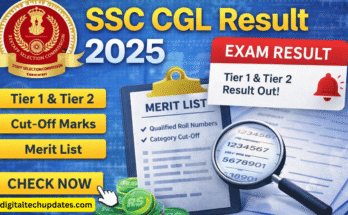Feeling lost about your career is more common than people admit. You finish school, land a job, and suddenly realize you’re not sure what you want. The world tells you to follow your passion, but passion doesn’t always pay the bills or point you in a clear direction. So what do you do?
You take action. Finding a career that fits isn’t about waiting for clarity to strike—it’s about building it yourself. Step by step. In this article, we break down the process to help you move from confusion to confidence and into a career that actually makes sense for you.
Why Career Confusion Happens
Let’s get one thing straight: you’re not broken. The job market is complex, and we’re expected to make big decisions early, often with little real-world experience. That disconnect between expectation and reality is where confusion starts.
Some common reasons people feel unsure about their career:
- Too many options. You can do anything, but that doesn’t mean you know what you should do.
- Lack of direction. School rarely prepares you for how work actually feels.
- Fear of making the wrong choice. You don’t want to waste time on the wrong path.
- External pressure. Family, peers, and society all have opinions about success.
Understanding the root of your confusion is the first step toward clarity.
Step 1: Identify What Matters to You
Instead of jumping into job listings, pause and get personal. What drives you? What drains you? Reflect on these core areas:
- Values. Do you want flexibility? Security? Impact? Recognition?
- Skills. What are you naturally good at? What do you enjoy learning?
- Interests. Which topics or industries catch your attention without effort?
- Work style. Do you like collaborating or working solo? Fast-paced or steady?
You don’t need all the answers right away, but even a few clear points will guide your search.
Step 2: Explore Without Committing
Most people feel stuck because they think they need to “figure it out” before taking action. But exploration is action.
Here are a few low-risk ways to explore careers:
- Informational interviews. Reach out to people doing jobs you’re curious about. Ask what a typical day looks like, what challenges they face, and what they love (or don’t).
- Online courses. Try a short class in UX design, copywriting, project management—whatever piques your interest.
- Freelance or volunteer. Get hands-on experience without a long-term commitment.
Trying things helps you move from theory to reality. You’ll find out what works and what doesn’t much faster this way.
Step 3: Build Skills That Match Your Direction
Once you’ve narrowed your focus, it’s time to invest in yourself. You don’t need to go back to school unless it’s required. Often, targeted skill-building can open new doors.
Examples:
- Interested in data analysis? Learn Excel, SQL, and Tableau.
- Considering marketing? Study content strategy and analytics.
- Curious about trades? Research apprenticeships and certifications.
Keep your goals in mind and pick skills that support them. Think of it as customizing your toolbox.
Step 4: Polish Your Application Strategy
Even if you’re just getting started, how you present yourself matters. You want employers to see how your story fits the job. This is where your resume and cover letter come in.
A strong cover letter bridges the gap between who you are and where you want to go. It lets you explain why a job makes sense for you, even if your background isn’t a perfect match. Take the time to tailor each one to the role.
If writing isn’t your strength, there are tools that can help. For example, customizable resume templates at My Perfect Resume make it easy to build a professional resume that highlights your strengths. You can also create a job-winning cover letter to ensure you’re making a strong first impression.
Step 5: Test, Adjust, Repeat
Finding the right career is rarely a straight line. It’s a process of testing, reflecting, and refining.
Ask yourself:
- What parts of this job feel right?
- What do I want more or less of?
- Where do I feel stuck or energized?
Use those answers to adjust. Sometimes that means shifting your role. Other times, it means switching industries entirely. The key is not to stay frozen. Every experience teaches you something.
Step 6: Define Success On Your Own Terms
A big reason people stay confused is because they’re chasing someone else’s version of success. Titles, salaries, prestige—none of those matter if the work itself feels wrong.
Ask yourself:
- What kind of life do I want to build?
- What does meaningful work look like to me?
- Am I proud of how I spend my time?
Confidence comes from alignment. When your work reflects your values, skills, and goals, it feels right. Even hard days feel worth it.
Conclusion
Career clarity doesn’t arrive overnight. It takes action, self-awareness, and the courage to explore. Confusion is just a sign that you care about making the right move—and that you’re ready for change.
Whether you’re starting out, pivoting mid-career, or figuring out your next chapter, the path forward is yours to shape. Use the steps above as a guide, and trust that confidence will follow your commitment.




